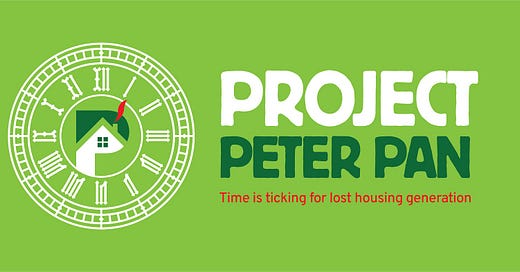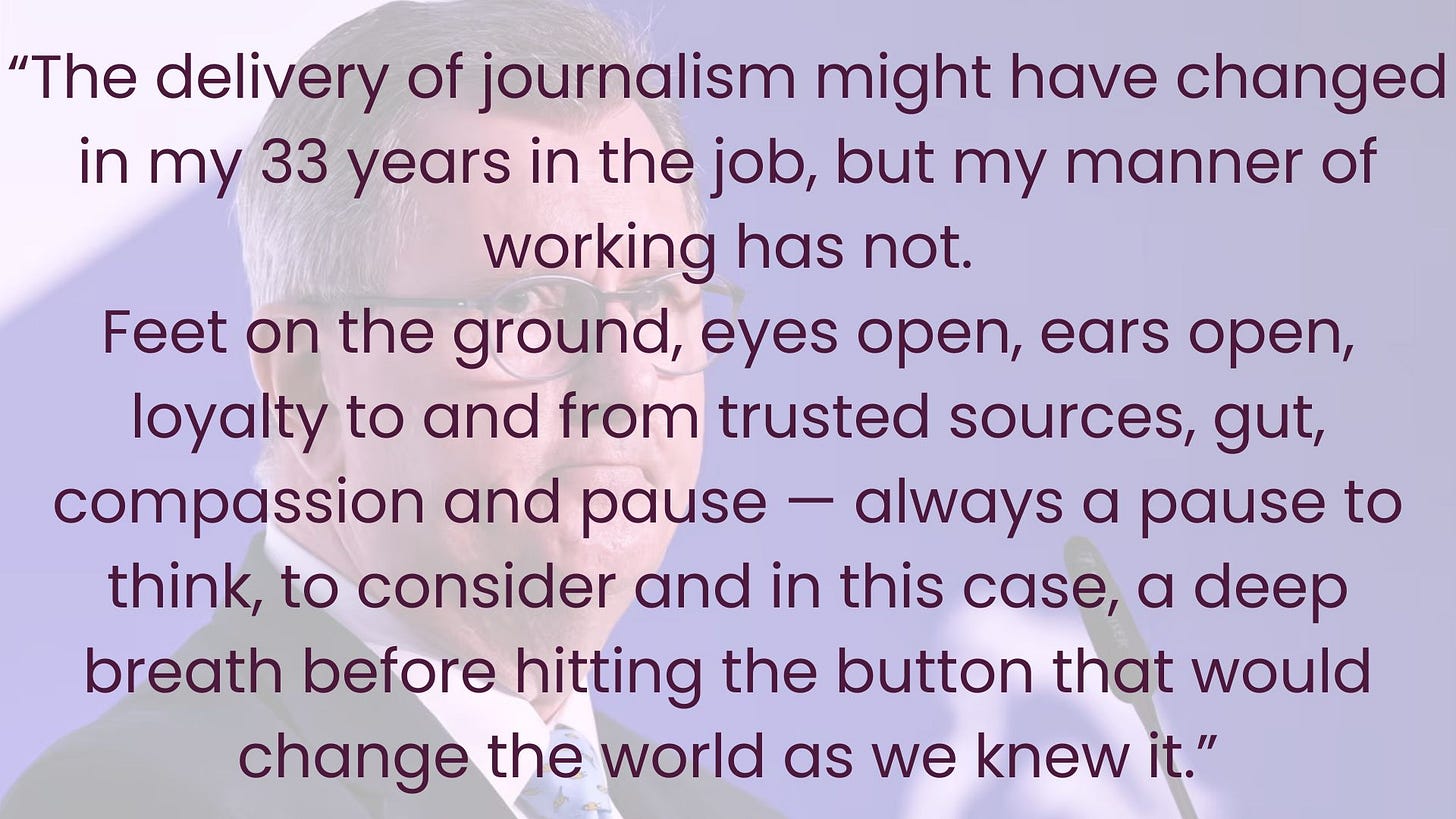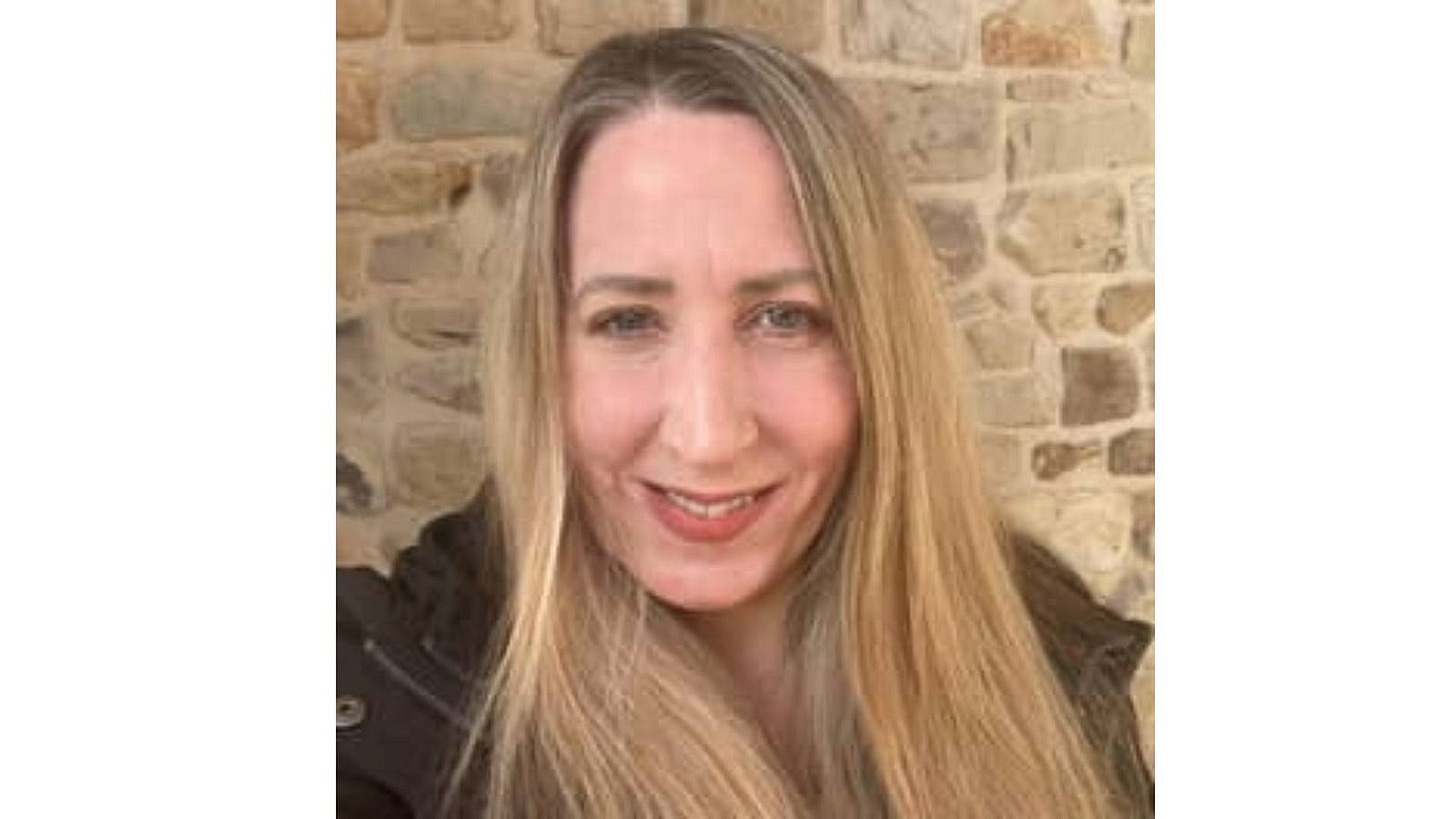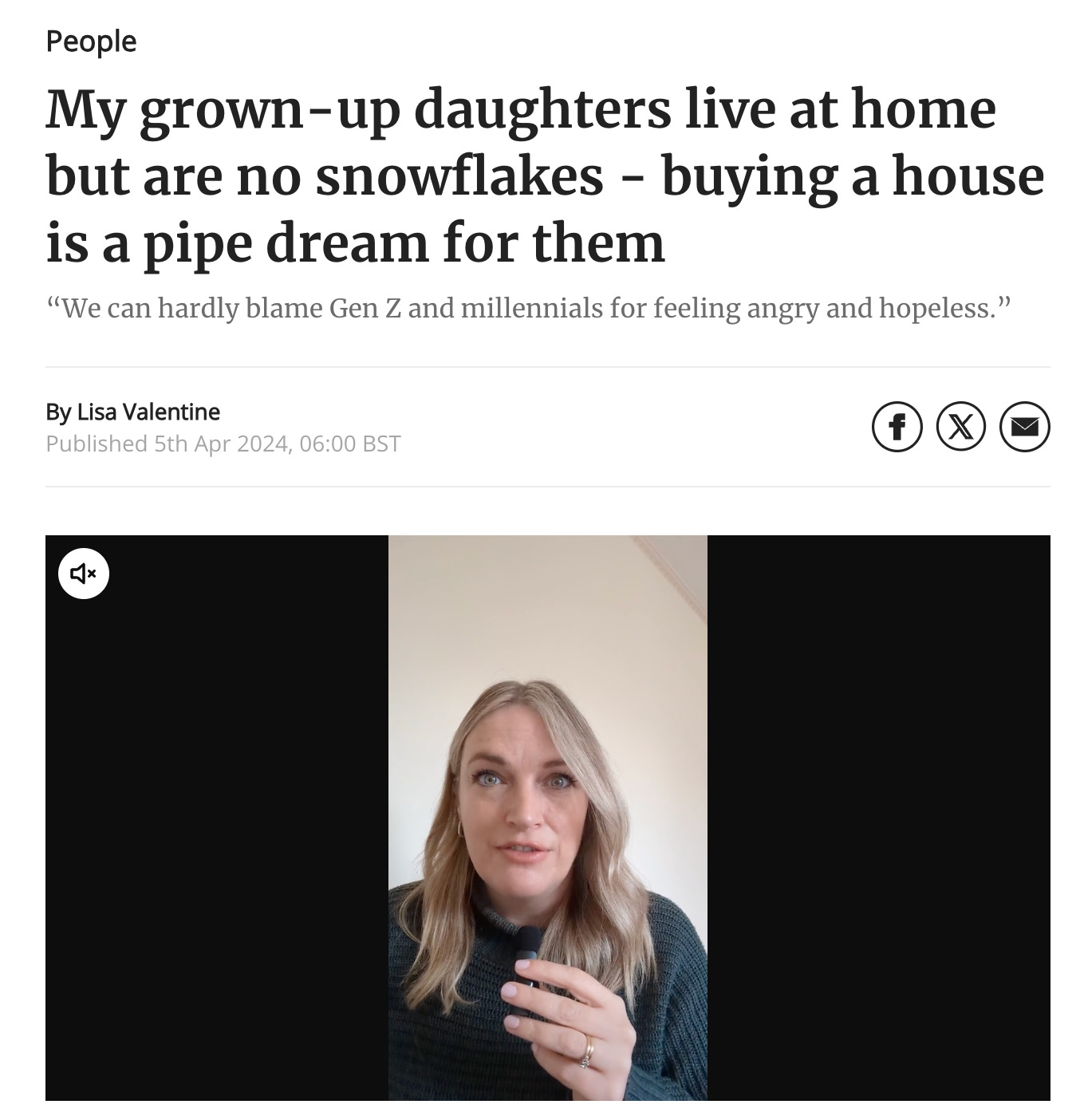Championing a lost generation through campaigning journalism
Why local journalism can provide the platform Gen Z needs to make its voice heard
Good morning,
Is it any wonder that young people are less likely to read news when tropes like the ‘bank of mum and dad’ and ‘snowflakes’ are so often making it into the national headlines? Last week,
published some scary research which suggested interest in news among under-35s (aka all our future audiences) was falling even further.So what to do about it? This week, for our main feature, Nicola Adam of National World has written about what motivated newsrooms around the country to work together to launch Project Peter Pan - providing a platform for the generation which fears home ownership will never be anything more than a dream.
Gen Z probably has greater access to media platforms than any generation before it, but as Nicola points, out, too often their voices and views aren’t making it out of TikTok. National World’s titles aim to do something about that.
If you missed our Thursday Extra, where we look to share a post on a specific topic or issue, you can find it here - all about local publisher Social Spider’s plan to sustain its operations by appealing for patrons willing to pay £500 to support local news.
The organisation has a powerful statement for the industry: “Local news is too important to be behind a paywall, sent out in private newsletters or locked into a model where circulation dwindles month on month. Local news needs to get in front of people to inform, to stimulate and to entertain.” You can read more about that here.
Thanks also for the kind comments about last week’s rather long bank holiday read which looked at the shortlisted entries for scoop of the year at the Regional Press Awards. If you missed it, you can find it here.
If you’re already a subscriber to this email, please consider sharing it so more. people can see it. If you’re finding us via social media or other links, please hit the subscribe button so you never miss an email from us.
Thanks for reading,
Behind Local News
New this week
Jeffrey Donaldson scoop journalist: Training 33 years ago has stood test of time
When reflecting on how she landed the scoop of the year so far in Northern Ireland, Jilly Beattie was quick to praise an editor who gave the skills to be a reporter - and which are as relevant today as they ever were.
Weekly, not weakly - inside some of the best local weekly papers in the country
In an era of 24-hour news, local weekly newspapers are finding new ways to remain relevant to readers - while staying true to their original purpose. In our latest preview of the Regional Press awards, we look look at the weeklies which are are anything but weakly (and thanks to one of the shortlisted entries for that pun!)
The perils and pitfalls which lurk in the quest for the perfect April Fool’s story
Our Saturday special looked at the jokes local newsrooms played this year - and the risks which others have found with them too.
Birmingham City Council collapse the subject of local journalism documentary
Remember when Lord Hague argued that local scrutiny of Europe’s biggest council isn’t what it once was? BirminghamWorld has sought to provide further evidence that isn’t the case.
Data journalists have readers find local sewage spill hotspots near them
It’s been one of the stories of the Easter break - the sewage being pumped into our rivers and seas. Data journalists at Reach have now made it easy for people to see how bad the problem is near to them.
Celebrating this week
There are winning streaks, then there’s Carlisle News and Star Jon Colman’s track record at the Sports Journalism Awards, held last week. He picked up the regional prize for a ninth time - a record for the awards.
Congratulations to the Liverpool Echo and cricket writer Tom Evans, who between them scooped the two local awards at the England and Wales Cricket Board’s domestic media awards, held at the Oval on Tuesday.
Reach is among the publishers shortlisted at the INMA Global Media Awards, due to be held in London next month at the organisation’s annual conference. The shortlist for Reach is for its work to use WhatsApp to reach new, loyal readers - a rare bright moment in relations between publishers and Meta in recent times.
At the NCTJ excellence awards, a number of universities were honoured for their work educating future journalists. The University of Sheffield took all three shortlistings in the innovation award, while Liverpool John Moores University was recognised for its work around diversity and inclusion.
Congratulations to
, the founder of Substack newsletter , who a year after starting the daily briefing, has announced he has made it his full time job.And congratulations also too Frankie Lister-Fell who has been appointed assistant editor at the Camden New Journal, and to Isabel Loubser who has been appointed as a reporter at the Islington Tribune.
New jobs this week
Each week, we’ll share some of the latest jobs in local news which have been sent to us. If you have one to promote, please contact us here
Introducing: Writer’s Block - celebrating journalistic creativity away from the day job
Ok, so the name is a bit rubbish, and we open to suggestions! But we wanted to create a small space in the newsletter dedicated to celebrating what journalists get up to when they’re not chasing down stories for local readers. We thought we’d start with local journalists turned authors - but we’ll happily cover anything. If you have anything to share, let us know here.
Today, someone who many would describe as a legend of local newspapers - Gary Phelps, the former editor of the Tamworth Herald and eight other weekly newspapers in and around the West Midlands.
In addition to setting up Gary Phelps Communications, Gary last year also made his debut as a supernatural thriller author - with a book in which a local journalist (Joe Baxter) is the main character, and with more than one nod to things experienced as a journalist.
Written under the name G J Phelps, Gary said of 13 Doors: “I have always been a devotee of horror and supernatural fiction and, as an 80s kid, grew up watching classic movies of the time.
“I wanted to write a book that paid homage to those influences, while adding something new and different to the genre.
“While 13 Doors is fiction, there are a handful of stories and anecdotes in it that are based on real stories – stories that journalists couldn’t explain.”
13 Doors is published by The Book Guild and you can find it for sale here.
Want to feature in Writer’s Block? Please contact us here
The voices of lost young people aren’t making it out of TikTok — that’s why we need Project Peter Pan
Newsrooms around the country have united to provide a platform, and voice, for the generation which simply cannot afford to get on the property ladder — exposing the ‘bank of mum and dad’ and ‘snowflake’ tropes as little more than lazy cliches in the process. Nicola Adam explains why Project Peter Pan was launched — and what comes next:
Several decades ago, I was a trainee journalist in Preston, Lancashire, working for a free newspaper and earning my starter salary £9,100 p/a.
I lived in an appalling and smelly flat above a kebab shop with my ex boyfriend, who was a post-grad student and a bartender, for which we paid around £500 per month.
Then we moved on to renting a two-bed semi a few streets away for £650 after I’d qualified as a senior journalist (£12,000 p/a) and my partner had finished his masters and got an actual full time job (non journalist and basic wage).
A few years later, it was only with the help of our parents we found the deposit to buy our own property, a couple of thousand scraped together, and we were on the property ladder albeit up to our ears in several types of debt.
Looking back, we were incredibly lucky. We had non-wealthy parents willing to sacrifice on our behalf, our student debts were relatively low and cheap to pay back and our other debts largely manageable despite our low salaries.
Our first house south of the city cost £60,000 which is unimaginable in today’s property climate.
We were secure, if cash poor, but when jobs in London came knocking for both of us in those years (London was and is where most of the journalist jobs were and are, particularly nationals and broadcast) even we knew we could never afford to make the move and have what we did.
So we stayed and benefited from a cheaper lifestyle with my mother’s illness also a deciding factor to stay nearby.
For young people today, most of this is an impossibility. With average house prices across the UK averaging at £284,691 (Land Registry) and salaries at £34,963, it now costs 8.14 times the annual salary to buy a house, compared to 2.8 times in 1971.
House prices have spiralled past the point of manageability, rents are high and property quality low so a gap has developed between those with generational wealth and ambition — and just ambition.
Many in their 20s and 30s are quite lost and despite working hard and often in multiple jobs, unable to hit those milestones of adulthood and independence in a meaningful way.
According to a report from the HomeOwners Alliance, less than half of aspiring first-time buyers expect their homeownership dream to become a reality.
As an editor I was seeing study after study landing in my inbox, declaring house price rises, cost of living rises, average of houseowner rises and the perils of being stuck in a rental loop.
Meanwhile, the media discussed the ‘bank of mum and dad’, the unhelpful narrative of ‘snowflakes’ and made unfair accusations of a generation spending their money on lattes, expensive leggings and shiny phones.
Yet the voices of these lost young people are not coming through or making their way out of TikTok or the channels where these highly-informed digital natives vent.
Instead the generations clashed, each blaming each other for the situation, with emotions running high. The knock on effect is a mental health epidemic amid the pressures of modern life as costs spiral.
Cue Project Peter Pan: Championing the lost generation. In some ways PPP emulates an old fashioned newspaper campaign with the values of people at its heart.
But we saw an opportunity across our digital ‘City World’ online brands here at National World to allow those straddling Generation Z and Millennials to tell stories locally in their own voices via words and video in formats and places appealing to them as consumers, while working together as a powerful combined UK-wide media unit to shout loudly with them and for them in an election year.
Every site in our 17-strong division is involved from Portsmouth to Glasgow, launching with our current listening phase where we continue to tell the powerful local stories of those struggling backed up by the hard data crunched locally for each area.
They told our reporters they are frozen out of the housing ladder and stuck in a rental cycle often in substandard accommodation or they are in debt and facing impossible decisions. Stories are told on video, in words, by interview and in first person by those impacted and those around them.
One mum of two 20-something daughters told Manchester World why her children still live at home but are desperate to gain independence. A Leeds woman who feels trapped in the cycle of renting for years told Yorkshire Evening Post (video) of the sky-high fees she was paying out that made it “impossible” for her to save for a house deposit.
Meanwhile, 28-year-old Sam told Liverpool World despite earning £30,000 as an architect and saving £20,000 through extreme self-discipline, it’s impossible to find a two-bed city centre property anywhere near his price range. These are all in the relatively cheaper north and the stories coming into London World are those of despair and being forced to move abroad.
So what next for Project Peter Pan?
Next is action as we take those voices to those who can impact meaningful change — politicians should expect a knock at the door.
The following titles are taking part: Glasgow World, Manchester World, Yorkshire Evening Post, The Star Sheffield, Lancashire Post, Blackpool Gazette, Derby World, Nottingham World, London World, Shields Gazette, The News — Portsmouth, Liverpool World, Bristol World, Newcastle World, Birmingham World, Sunderland Echo, Edinburgh Evening News.
Nicola Adam is Editor in chief (North) at National World









